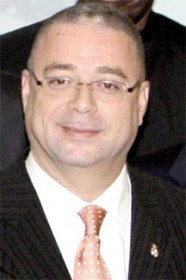Reprinted from the Trinidad and Tobago Review – October 2010
By anka Price
David Thompson, Prime Minister of Barbados who died of pancreatic cancer two Saturdays ago, was the 14th prime minister in the English-speaking Caribbean to die in office in the last 43 years.
Like Thompson, 11 of the regional leaders succumbed to health related issues. Only one, Maurice Bishop of Grenada, died violently. He was assassinated. At 39 years old, he was also the youngest.
This high number of prime ministers who have died in office due to ill-health since 1967 (see box on page 4) is much higher than the number of Euro-pean and North American leaders who were either assassinated or died from ill-health for the corresponding period. In fact, on a per capita basis, the Caribbean has the highest rate in the world for leaders who have died in office due to health problems.
This is not a flattering factoid. Rather, it is an indication of the stressful conditions under which Caribbean leaders function and a grim reminder of their mortal weakness.Most of the prime ministers succumbed to heart disease, though it was later learnt that many had underlying problems such as diabetes, hypertension or high cholesterol – three chronic non-communicable diseases, often referred to as “silent killers”.These conditions, coupled with a heavy workload and the pressures of decision-making as head of government and political leader, make for a deadly mix.
Some of this region’s greatest leaders, like Dr Eric Williams of Trinidad and Tobago and Errol Barrow were lost to this fatal cocktail.
Apart from the 14 who died, three others were forc-ed to leave office because of health reasons. One had an angina attack, another had a stroke, while one underwent critical sur-gery. Most of the leaders died from heart-related diseases and stress.
Speaking in response to the sudden death of Domi-nica’s Prime Minister Pierre Charles in 2004, cardiologist Richard Ishmael, who was Thompson’s personal physician, opined: “Ministers and Prime Ministers need to live a healthy lifestyle and see their doctors regularly. They don’t sleep well or exercise a lot, and with all the cocktail parties they attend with fish cakes and sausages, they don’t eat well either. The number of cases with chronic artery disease is extremely high among politicians.”

One of those leaders who succumbed to a heart attack was Tom Adams. In his last Budget in 1984, he spoke of the stress of office at the end of his presentation:
“Mr Deputy Speaker, this is the 8th Budget I have had the honour to present to this House. It is not usual in budgetary presentations to touch a personal note, but on this occasion I feel constrained to depart from the norm and say that never before have I felt so great a sense of pressure leading up to my financial proposals as this year.” Within a year he was gone.
Another former Prime Minister who got a taste of this eventuality when he suffered an angina attack and had to be hospitalised was Sir Lloyd Erskine Sandiford. In an interview with the Barbados Nation’s BETTER HEALTH magazine in 2004 on the sudden death of Pierre Charles, Sir Lloyd said the stress of leadership is a tremendous burden which impacts one’s health. “I would be the first to admit that I would have undergone periods and episodes of stress [while in office],” Sir Lloyd said in his trademark slow, deliberate style. “It is one thing to know of it at a distance, it is another to experience it in a personal way and directly.
“Whenever you have to make a decision, whenever you have to choose among options, whenever the responsibility is yours to take a decision that is going to affect others and a situation, then it draws forth certain bodily reactions which we call stress, and it is very much present in political life, especially when it is life at the top,” he said.
Sir Lloyd said though his medical condition became public, some regional leaders have health problems but theirs was not known.
“I know of other instances that have not been made public, leaders in the Caribbean – heads of Government and heads of state – in which episodes of illness just came upon them. Some actually fell into my hands. [I was] sitting beside this leader and he just collapsed. It is a major problem and it’s stress.
“The doctors can say what are the causes of death, but I know that a contributing factor in the life of a busy leader is the question of stress.”
Sir Lloyd’s views have to be taken seriously because he wore the shoes and knows how they pinch. He advised prime ministers to make exercise a part of their daily routine and to have a healthy diet. That is the kind of advice which should apply to everybody in what are referred to as sedentary jobs. Yet, there can be no doubt that notwithstanding appropriate exercise and diet, the job of Prime Minister brings with it unique pressures.
Given the history of health problems associated with our political leaders in the past 43 years which have resulted in the high number of deaths in office, their health has definitely become more than a matter of personal concern. The political health of the nation may also be involved, and the stakes are high.





